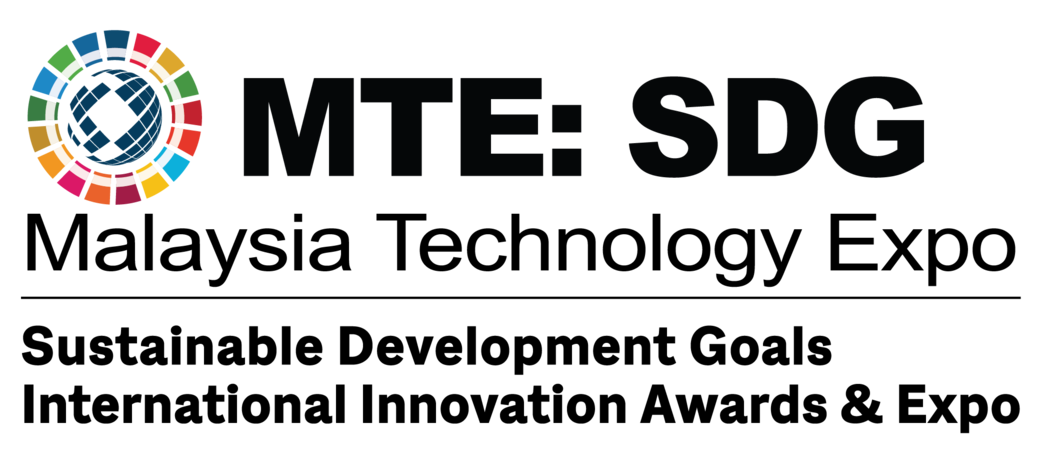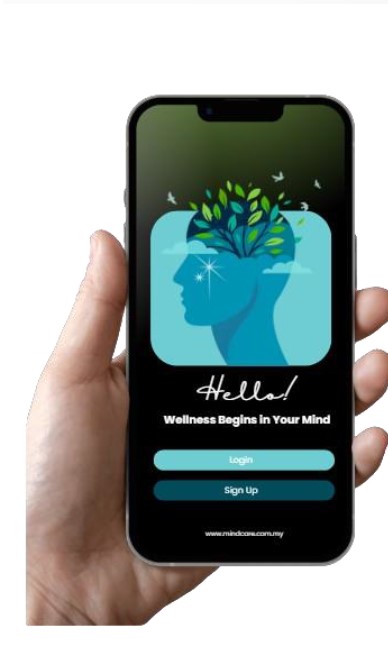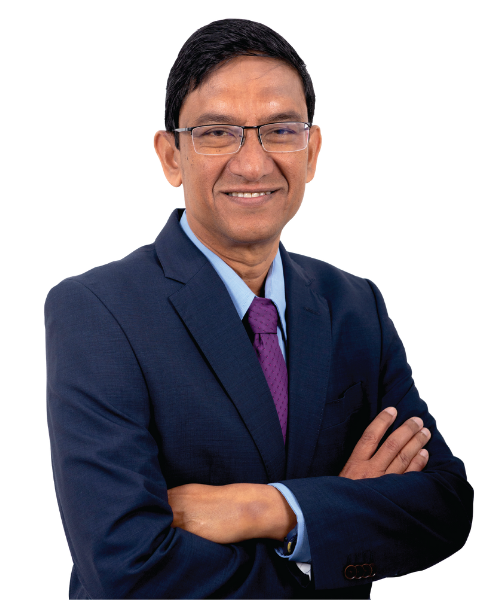MindCare – Digital Mental Health App
1. Can you briefly introduce your winning innovation and the problem it addresses?
MindCare is a digital mental health support app designed to address limited access to mental health care, especially in underserved areas. By providing evidence-based, AI-driven support and virtual counseling, it bridges gaps caused by stigma, geographical constraints, and resource scarcity.
2. What were the key milestones in the development of your innovation?
MindCare began as an ideation-stage innovation, driven by a desktop study on mental health trends globally and in Malaysia. A significant finding from the National Health and Morbidity Survey 20151 revealed that nearly 29% of the population faces mental health challenges but lacks accessible support. This gap in support is further compounded by growing concerns about mental health among adolescents, with issues such as
loneliness, depression, and suicidal tendencies becoming increasingly prevalent.
Given this, MindCare aims to provide a comprehensive solution that caters to both teenagers and adults, recognizing that mental health issues manifest differently across age groups. For teenagers, the app can offer
features designed to address issues such as peer pressure, academic stress, and social isolation, providing interactive tools like mood trackers, peer support networks, and educational content in formats that resonate
with younger audiences. For adults, MindCare focuses on managing work-life balance, stress, and personal relationships, offering evidence-based resources, personalized support, and coping strategies for more
complex life challenges.
Thus, this research highlighted a critical need for affordable, stigma-free mental health resources, shaping MindCare’s core focus on accessibility. Then, we developed a framework with essential features like personalized support tools tailored for real-world impact. As an idea, MindCare’s future depends on gaining strong support from healthcare stakeholders and mental health advocates to transform it into a fully
functional app.
3. How does your innovation contribute to one or more of the Sustainable Development Goals (SDGs)?
- MindCare directly aligned with several Sustainable Development Goals (SDGs):
SDG 3: Good Health and Well-being
MindCare supports SDG 3 by addressing mental health as a vital component of overall well-being. By offering accessible, affordable, and inclusive mental health resources, the app promotes mental health for individuals across all age groups. Its tailored approach helps foster resilience and well-being in diverse populations, advancing the goal of ensuring healthy lives and well-being for all. - SDG 10: Reduced Inequality
MindCare directly aligns with SDG 10 by prioritizing equitable mental health care for underserved and marginalized communities. It addresses systemic disparities that prevent access to mental health services, ensuring inclusivity regardless of geographical, socio-economic, or cultural barriers.
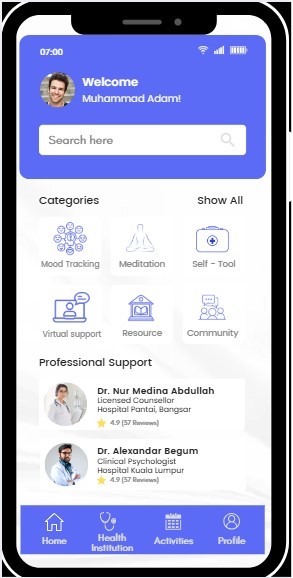
4. How did you overcome any technical or logistical challenges during the creation process?
Since MindCare is still in the conceptual phase, our focus has been on identifying potential challenges through a detailed desktop study. Key anticipated challenges include securing funding to ensure the app’s sustainability, as our primary target users are underserved communities who may not be able to afford paid services. Additionally, we foresee the need for strong support from healthcare systems and professionals for effective integration with existing services. Designing an intuitive user experience and ensuring access for rural communities are also critical considerations. These insights are guiding our strategic planning as we lay the groundwork for addressing these challenges effectively.
5. How do you plan to scale or further develop your innovation to maximize its impact?
MindCare is currently in the ideation stage, and its growth is contingent on strong support from stakeholders, particularly in the healthcare sector and mental health advocacy. Securing funding and stakeholder backing is critical to transforming this concept into a fully functional app. Should we gain sustained support, we envision expanding MindCare’s reach to more communities, tailoring features to diverse user needs and forming partnerships with healthcare providers and NGOs to integrate MindCare into broader support systems.
6. How do you ensure your innovation remains sustainable as it grows?
MindCare’s sustainability relies heavily on securing strong support from stakeholders and funding sources. While still conceptual, we focus on prioritizing user feedback and ongoing research to refine MindCare’s core features. Additionally, we aim to design a scalable infrastructure that can seamlessly integrate with healthcare systems, ensuring adaptability as demand increases.
7. What feedback have you received from users or communities that benefited from your innovation?
Since MindCare is still in the ideation stage, we have not yet collected user feedback. However, our initial research highlighted a significant need for accessible mental health solutions, particularly in underserved communities. This insight continues to shape our approach, ensuring the concept is aligned with user needs and expectations. As the app further develops and grows, we’ll continually adapt features based on user feedback and emerging mental health trends, ensuring that MindCare stays relevant, effective, and financially sustainable over time.
8. How important is recognition from platforms like MTE for sustainable innovations?
Recognition from MTE is invaluable; it brings credibility, visibility, and support, which are crucial for expanding the reach and impact of sustainable innovations like MindCare. It also validates our work and inspires continued commitment.
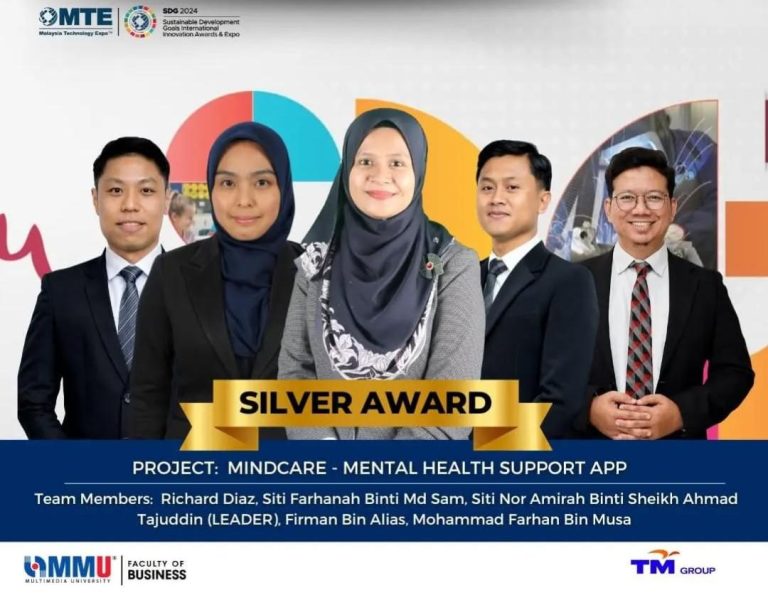
9. What role did partnerships or collaborations play in the success of your project?
Partnerships and collaborations have not yet been established for MindCare, as it is still in the early stages of ideation. The concept of MindCare originated from intensive group discussions within our team, focusing on addressing the acute need for accessible mental health services. Our discussions explored various perspectives on how technology can bridge the gaps in mental health care, particularly in underserved areas. While we have not yet engaged directly with mental health professionals or formed formal partnerships, our approach has been to lay a strong conceptual foundation, which we can build upon as the project moves forward.
10. What does winning this award mean to you personally and professionally?
Winning this award is both a tremendous honor and a powerful motivator. On a personal level, it reinforces our deep passion for creating meaningful solutions that make a difference. Professionally, it validates the impact of MindCare’s work, showcasing the value we bring to mental health. This recognition not only strengthens our commitment but also opens doors to new opportunities for growth and collaboration, enabling us to continue championing mental well-being.
Innovators:
Siti Nor Amirah Binti Sheikh Ahmad Tajuddin
Siti Farhanah Binti Md Sam
Richard Diaz
Firman Bin Alias
Mohammad Farhan Bin Musa
Organisation Name: Multimedia University
Email: noramirah.tajuddin@mcmc.gov.my
